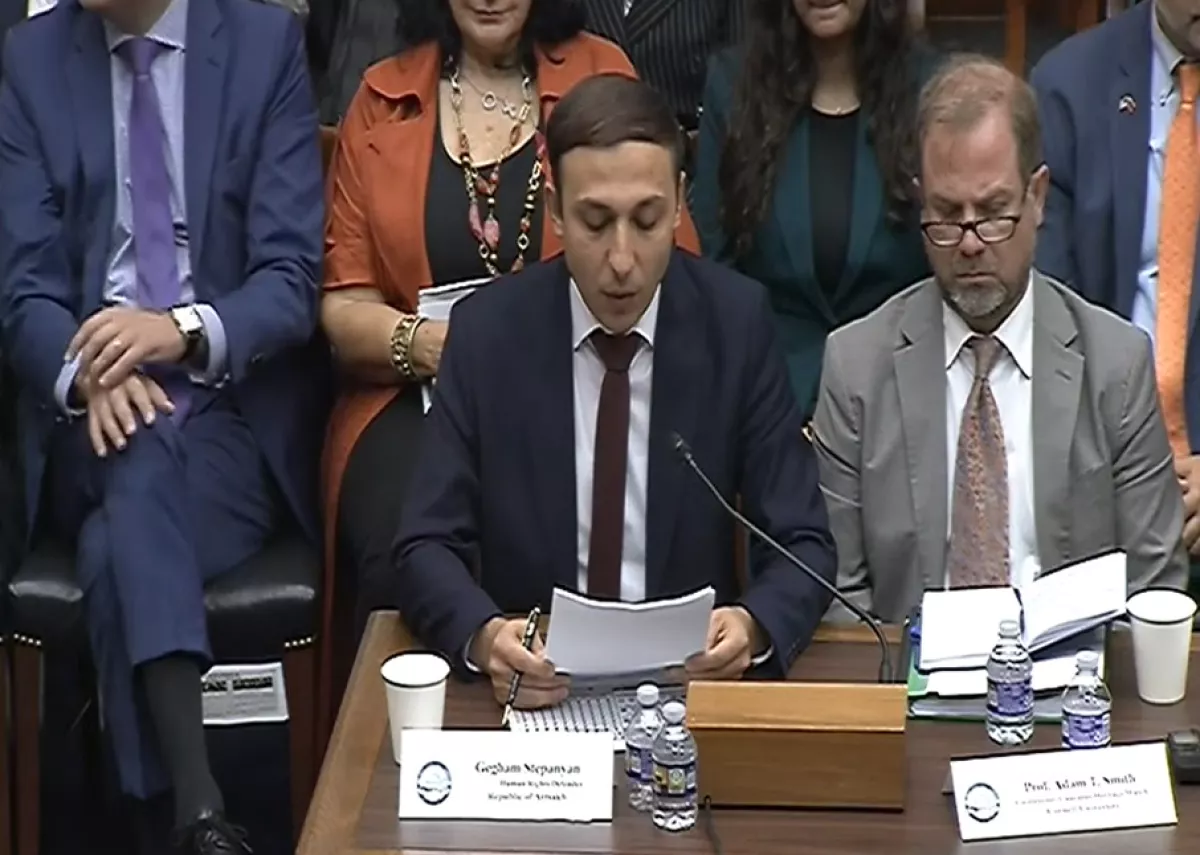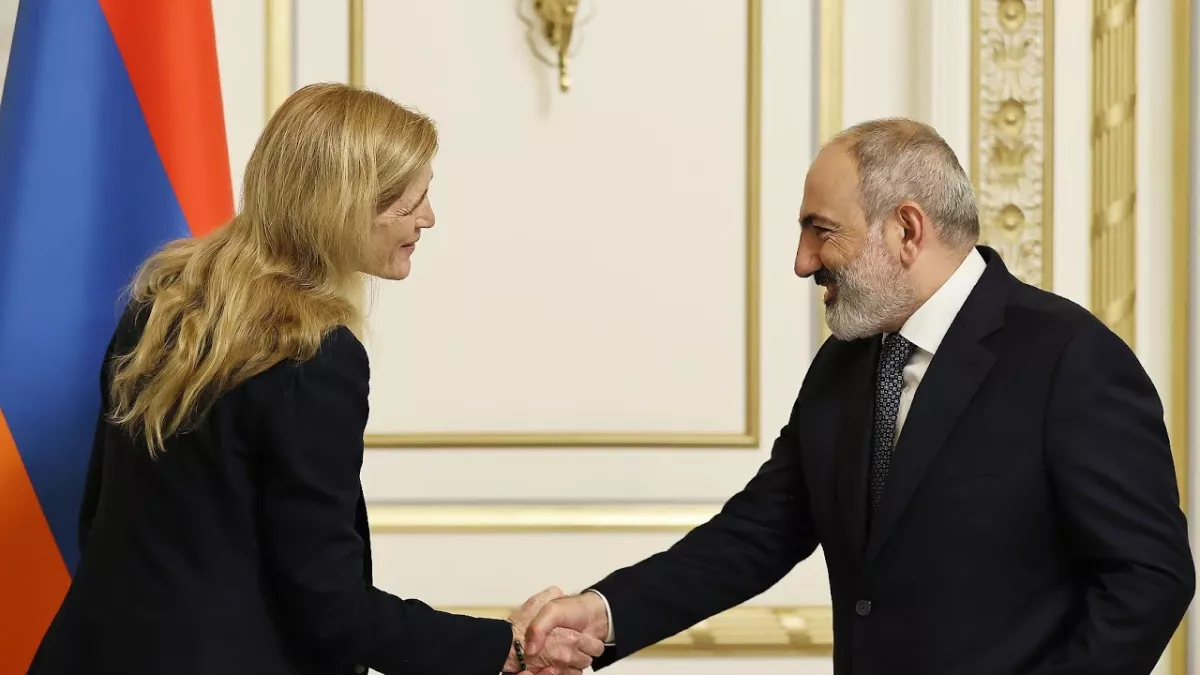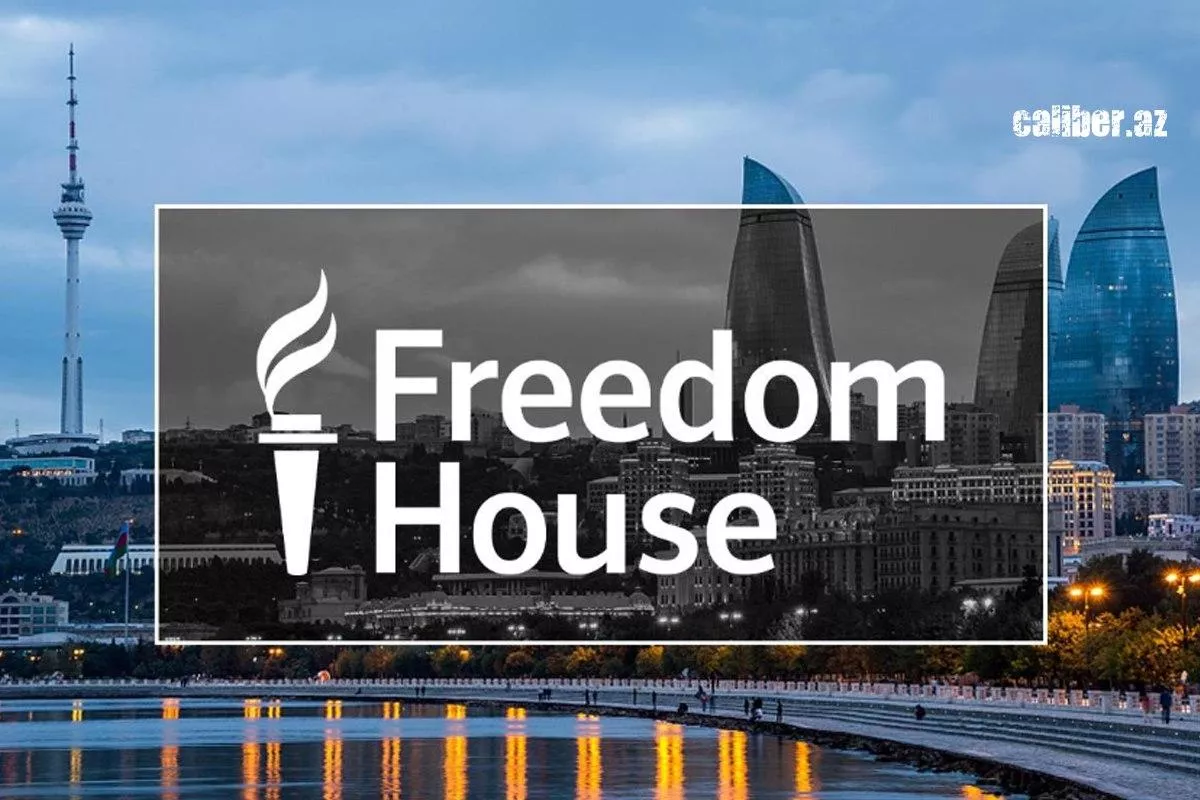Backing Armenia at any cost: US State Department unmasked
The topic of the Karabakh conflict is now definitively closed, it has become part of history, and a new reality has emerged in the region. For nearly four years, Azerbaijan has been conducting extensive reconstruction and restoration work in the Karabakh and Eastern Zangezur economic regions using its own resources. Thousands of former internally displaced persons have already returned to their native lands. As President of Azerbaijan Ilham Aliyev stated, "We will turn this region, we will turn Karabakh into a paradise. We will forever live in these lands. No one can ever move us from these lands. Karabakh is ours! Karabakh is Azerbaijan!" However, not all global powers and centers of influence are willing to accept this new reality and continue attempting to reverse the situation. Leading the charge in this less-than-honorable endeavor is the United States.
One of the most significant – and concerning – developments this past August was an exclusive report by Caliber.Az, which revealed that under the classified section of an agreement signed in Brussels on April 5, outlining military cooperation, the United States had delivered cutting-edge American-made weaponry to Armenia and stationed a limited contingent of troops in Zangezur. When we consider the joint US-Armenian military exercises held in July, it becomes clear that Washington is pursuing a hypocritical policy. On one hand, it calls for peace between Baku and Yerevan, while on the other, it not only supplies Armenia with lethal weapons and ammunition but also actively encourages new provocations. Naturally, this support for Armenia extends beyond military aid—it also includes political and diplomatic backing.
Take note: on September 16, US Secretary of State Antony Blinken called President of Azerbaijan Ilham Aliyev. During the conversation, the head of American diplomacy—who, in fact, is one of the de facto leaders of the United States under the fading presidency of Biden—emphasized the importance of a lasting peace between Armenia and Azerbaijan and assured that "the United States would spare no effort to achieve this objective." However, the value of Blinken's words became clear just three days after his conversation with Aliyev.
On September 19, the Tom Lantos Human Rights Commission in the US Congress held hearings on the topic, notably, "Human rights in Azerbaijan since the Fall of Nagorno-Karabakh," which was rightly perceived in Baku as an open display of disrespect for Azerbaijan’s sovereignty and territorial integrity. Notably, representatives of the former separatist regime also participated in the hearings, including Gegham Stepanyan, who was introduced as the "Ombudsman of the Republic of Artsakh."

It’s not hard to guess that during these hearings, baseless accusations against Azerbaijan flowed freely. And it wasn’t just representatives of the “most long-suffering” nation making these claims—members of the commission, likely generously funded by the Armenian diaspora, were also involved. After watching the video of the hearing (which, by the way, lasted 1 hour and 43 minutes), we were left with the impression that it was nothing more than a mock trial, where the accused was not even given the right to speak, let alone the right to defend themselves. And this in the US, a country so fond of lecturing about democracy and the presumption of innocence. Surely, you’d agree that US policy has crossed all reasonable boundaries.
Some may argue that official Washington had nothing to do with these hearings, pointing to the clear separation of powers in the United States. That may be true when it comes to domestic affairs, but when it comes to supporting Armenians and engaging in anti-Azerbaijani actions, the executive and legislative branches seem to be in a race to outdo each other.
In this case, too, visas for separatists like Geghamyan to enter the US were issued by the US Embassy in Armenia. This falls under the responsibility of the State Department, whose head, in conversation with President Aliyev, stressed the "importance of lasting peace between Armenia and Azerbaijan" and promised that "the United States would spare no effort to achieve this objective." But how do these words match up with real actions? It’s hard to imagine the Americans issuing visas to, say, separatists from the "DPR" or Abkhazia. In fact, just this year, the US State Department denied former Guatemalan President Alejandro Giammattei entry into the US due to his involvement in corruption. Yet, Karabakh separatists are granted easy entry into the US, where they are given the opportunity to accuse Azerbaijan on Capitol Hill.
And this is not the first time: from January 22 to February 9, 2024, Gegham Stepanyan and the so-called "former State Minister of Artsakh," Artak Beglaryan, spoke in the US Congress, eagerly discussing the "democratic aspirations of the people of Nagorno-Karabakh," a narrative that resonates well with American lawmakers. The fact that the US grants visas to representatives of the defunct separatist regime directly points to US support for separatism, revealing their current political stance.
In other words, the support for the expansionist and separatist ambitions of the Armenians, including at the level of Congress and the State Department, is no accident but a deliberate policy of the United States. And it is the State Department that directs and oversees this policy.
To back up this claim, let’s provide some additional examples.
“The United States joins with so many in the international community in calling for the right of these individuals and families to be able to voluntarily, safely return to their homes, said the head of the US Agency for International Development (USAID), Samantha Power, during a briefing in Yerevan on July 10.
She assured that USAID will continue to advocate for and work toward this goal. Additionally, it’s worth noting the more recent news that USAID will more than double its financial aid to Armenia, from $120 million to $250 million. It’s important to emphasize that USAID is the top federal agency of the US government, with its administrator and deputy administrator appointed by the president and working in coordination with the Secretary of State.
We are not so naive as to believe the US claims that this increased aid to Armenia is solely intended to support the country’s democratic and economic development, strengthen its integration into the regional economy, diversify trade, and boost its resilience against negative impacts. In reality, these funds are freeing up resources for rearming the Armenian military and preparing the country for a new war.

In this same context, we should consider the recent report by the OCCRP (Organized Crime and Corruption Reporting Project), authored by journalist Rasmus Canbäck, who is well-known for his anti-Azerbaijani screeds and is a provider of propaganda services to the Armenian diaspora. This report, co-authored with the Armenian "journalist of the blockade" Marut Vanyan, claimed that Azerbaijan allegedly obstructed the activities of the ICRC in areas formerly populated by Armenians in the Karabakh region, "thus exacerbating the alleged humanitarian crisis caused by the so-called blockade." A key detail: one of the numerous sponsors of the OCCRP project is, once again, USAID.
Meanwhile, US Assistant Secretary of State James O'Brien, whom we know all too well, made some notable comments in an interview with the Armenian service of Radio Free Europe/Radio Liberty.
“Until the completion of an independent investigation, Washington does not have a clear assessment of whether what happened in Nagorno-Karabakh was immigration or ethnic cleansing…We are currently busy with this,” said Blinken's deputy.
This is the same O'Brien who stated last November that “Azerbaijan's use of force in Nagorno-Karabakh undermined trust and raised doubts about Baku's commitment to a comprehensive peace with Armenia”. He indicated that the State Department had made it clear to Azerbaijan that we could not continue our bilateral relations on a "business as usual" basis. Although the Americans later had to backtrack, isn't this indicative of the State Department's destructive position?
Not far behind O'Brien is Yuri Kim, the Deputy Assistant Secretary of State for European and Eurasian Affairs, who this summer expressed support for the right of Armenians to return and suggested discrimination against Azerbaijanis during an event titled "The US role for a new order in the South Caucasus," organized by the Carnegie Endowment for International Peace. While discussing the right of return for Armenians who voluntarily relocated from the Karabakh region of Azerbaijan, Kim did not mention the right of return for Azerbaijanis who were forcibly displaced from Armenia. Clearly, such a stance by an official contradicts the principle of equality among people and hinders peace and reconciliation in the region.
Next, Freedom House published a report titled "Why there are no Armenians in Nagorno-Karabakh," covering events from 2020 to May 2024. The report hypocritically claimed that "people in Nagorno-Karabakh were intentionally subjected to regular attacks, intimidation, deprivation of basic rights and adequate living conditions, and forced displacement." Of course, it also included references to the "blockade," "humanitarian crisis," "human rights violations," and "destruction of Armenian cultural heritage"—a complete set of Armenian narratives. And let no one be misled by the fact that Freedom House positions itself as a non-governmental organization; its budget is funded 66–80 per cent through grants from the US government.

There are many more facts that show that the State Department is behind the support of Armenian separatism and revanchism, the militarization of Armenia, discriminatory and provocative policy against Azerbaijan. The masks have been dropped. The US makes it clear that it needs wars and destabilization in the South Caucasus, and Armenian expansionism is a convenient tool. Therefore, the Azerbaijani side has no faith in all these talks and assurances of the Americans about the commitment to peace between Baku and Yerevan.
As for the Armenians, we would like to strongly caution them against repeating past mistakes. We recall that in 2020-2023, the US and Europe generously fueled their false hopes of preserving the "miatsum gray zone" in the Karabakh region of Azerbaijan. Having forgotten about the defeat of 2020, the Armenian authorities began to arrange armed provocations and demonstrative convoys on the conditional border, demonstrating self-confidence. There were even absurd congratulations to the Karabakh separatists on their imaginary "independence day." And what did they get in the end? A severe military-political blow, the anniversary of which Azerbaijanis are marking these days.
Today, the situation is developing according to the same scenario: political and economic support from external actors, including the United States, again instills in them a false sense of confidence and impunity. However, it is worth remembering that when Azerbaijan's patience runs out, the "Iron Fist" comes into play and dire consequences for Armenians become inevitable.
P.S. By the way, for those who still think that the Karabakh case is not closed, we would like to remind that the issue of Western Azerbaijan is not closed either. The issue of creating a government of Western Azerbaijan in exile is literally in the air. We think that appropriate steps will be taken in this direction, which was recently warned by the Community of Western Azerbaijan.








